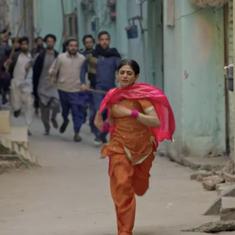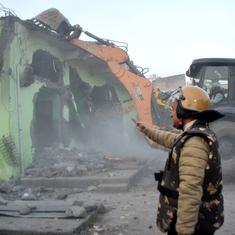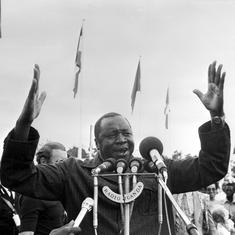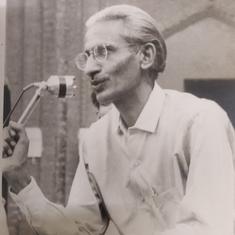Lok Sabha to take up removal motion against Justice Yashwant Varma: Centre
All parties have agreed that the impeachment of the judge over the unaccounted cash row should be a joint effort, said the parliamentary affairs minister.
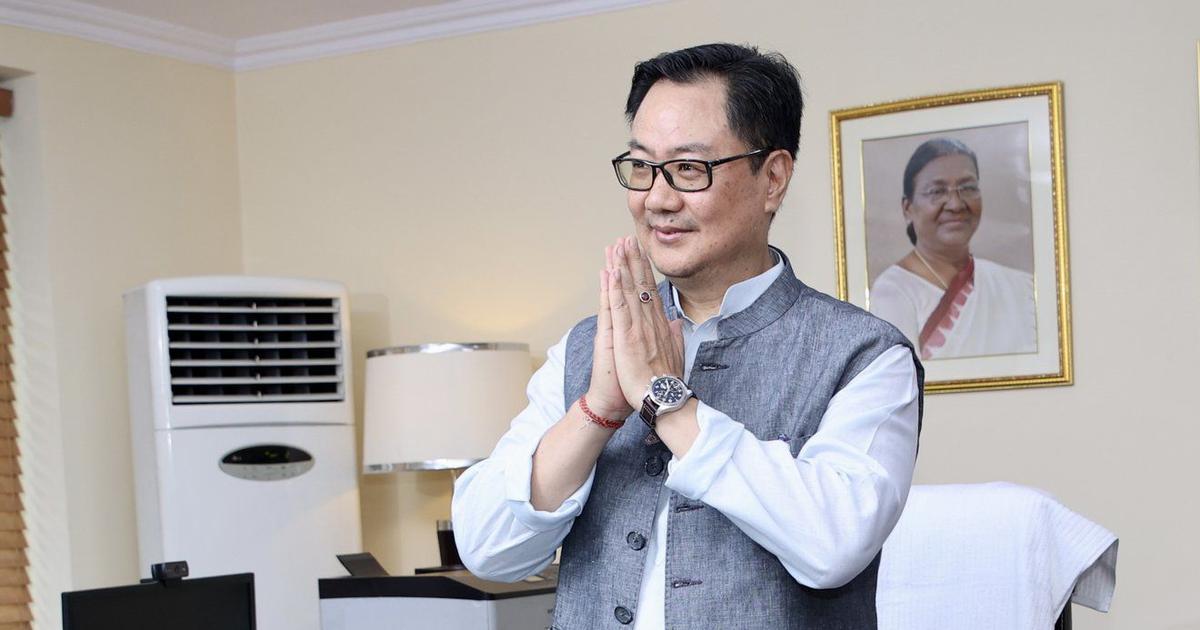
Parliamentary Affairs Minister Kiren Rijiju on Friday said that the Lok Sabha will take up a bipartisan motion to remove Justice Yashwant Varma, The Hindu reported.
The minister added that the decision to impeach the High Court judge was unanimous and that 152 MPs from the ruling coalition and the Opposition parties had signed the motion.
There is consensus that the removal of Varma should be a joint effort, The Hindu quoted Rijiju as saying. He said that the Lok Sabha will take up the proceedings before they move to the Rajya Sabha in line with the Judges Inquiry Act.
The minister’s comment came amid a motion sponsored by the Opposition being moved in the Upper House on July 21, which was the first day of the Monsoon Session of Parliament. The process had been initiated in the Lok Sabha on the same day, The Hindu reported.
The notice in the Rajya Sabha has not been admitted, the newspaper quoted unidentified officials as saying.
To impeach a judge in Parliament, a removal motion is required to be signed by 100 Lok Sabha MPs or 50 Rajya Sabha MPs. If the motion is admitted, a three-member judicial committee investigates the matter. The Parliament votes on the impeachment if the committee finds misconduct. If the motion gets two-thirds of the votes, the president is advised to remove the judge.
Lok Sabha Speaker Om Birla is expected to constitute the panel to probe the charges against Varma.
Unaccounted cash was allegedly recovered at Varma’s official residence in Delhi when emergency services responded to a fire there on March 14. He was a judge at the Delhi High Court at that time. The judge said that he was in Bhopal when the cash was discovered and claimed that it did not belong to him or his family.
Amid the row, he was transferred to the Allahabad High Court.
On March 22, the Supreme Court released a report, including a video and three photographs, showing bundles of notes that were allegedly recovered from the judge’s home.
The redacted report showed that Delhi High Court Chief Justice Devendra Kumar Upadhyaya had written to Varma on March 21, asking him to “account for the presence of money/cash” in a room located in his bungalow.
After Varma declined to voluntarily retire or resign, Sanjiv Khanna, the chief justice at the time, sent the final in-house inquiry committee report on the incident to the president and the prime minister.
The committee in its report had concluded that there was “sufficient substance” in the charges against Varma. The report, dated May 3, held that the judge’s misconduct was “serious enough to call for initiation of proceedings for removal”.
However, the report did not address questions about how the fire started, how much money was found, where the cash came from or where it is now.
On July 18, Varma moved the Supreme Court against the in-house panel’s findings, arguing that it creates a “parallel, extra-constitutional mechanism” and undermines the procedure laid out in law, which vests the power to remove High Court judges in Parliament.
Varma also challenged the recommendation made by Khanna to the president and the prime minister to initiate impeachment proceedings against him.
In his petition, Varma argued that the in-house inquiry committee had reached conclusions without giving him a fair opportunity to respond.
